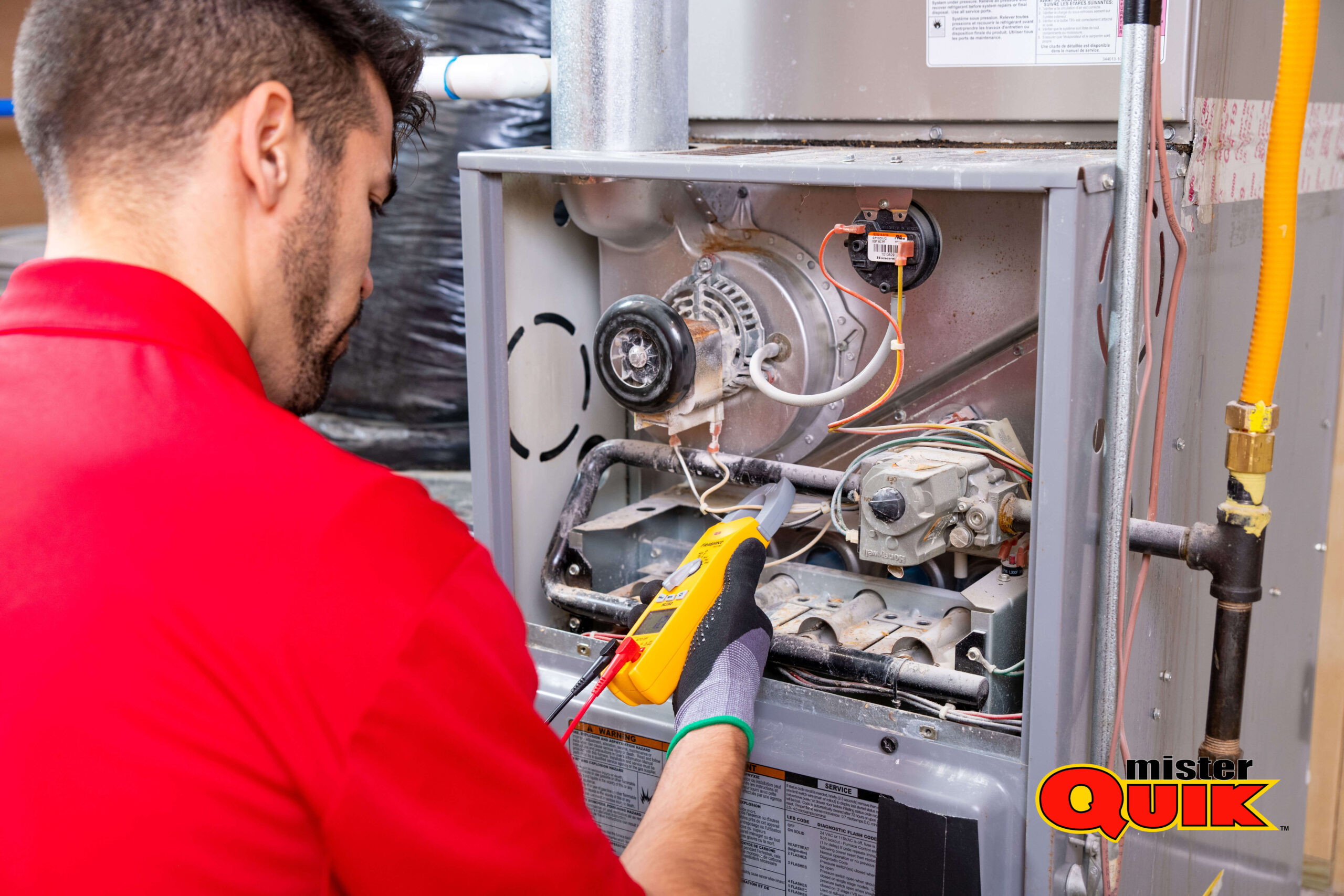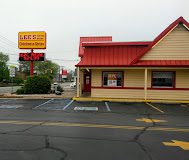Heating Installation Near Me
Schedule on your own without making a call. Click the button below to get started!

Types of Heating Systems for Homes
When it comes to keeping your home warm and cozy during the colder months, there are several types of heating systems to choose from. Here are some common options to consider:
Furnaces: Furnaces are one of the most popular heating systems used in homes. They typically run on natural gas, propane, or electricity and distribute heated air through ducts to various rooms in the house. Furnaces can be highly efficient and provide consistent warmth throughout the home.
Heat Pumps: Heat pumps are versatile heating and cooling systems that extract heat from the air or ground and transfer it indoors during the winter months. They operate on electricity and can be an energy-efficient option for moderate climates. Heat pumps are also known for their ability to provide both heating and cooling functions, making them a year-round solution for home comfort.
Boilers: Boilers use water or steam to heat your home. They are often fueled by natural gas, oil, or electricity and distribute heat through radiators, baseboard heaters, or radiant floor systems. Boilers are known for their reliability and even heating distribution, making them a popular choice for many homeowners.
Radiant Heating: Radiant heating systems use electric coils or hot water tubes installed beneath the floor, in walls, or in ceilings to radiate heat into the room. This type of heating provides comfortable, consistent warmth and can be a good option for new construction or home renovations.
Each type of heating system has its own advantages and considerations, depending on factors such as your home’s size, climate, and budget. Mister Quik Home Services can help you explore your options and choose the best heating system for your home. Contact us today for expert advice and installation services tailored to your needs.
Best Heating System for House
Choosing the best heating system for your house is crucial for ensuring comfort and efficiency in your home. Here are some factors to consider to help you make the right decision:
The availability and cost of fuel in your area will influence your choice of heating system. Common options include natural gas, propane, oil, electricity, and even renewable energy sources like solar or geothermal.
Look for heating systems with high energy efficiency ratings. Energy-efficient systems can help you save on utility bills and reduce your carbon footprint.
The size of your home and its heating requirements will determine the size and heating capacity of the system you need. A system that's too small won't effectively heat your home, while one that's too large may cycle on and off frequently, leading to energy waste and discomfort.
Consider both the upfront cost and the long-term operating costs of different heating systems. While some systems may have a higher initial investment, they may offer greater energy savings over time. Factor in installation, maintenance, and repair costs as well.
The cost of installing a heating system can vary significantly depending on factors such as the type of heating system (e.g., furnace, boiler, heat pump), the size of the property, the efficiency of the system, local labor rates, and any additional components or upgrades required. On average, installation costs can range from a few thousand dollars for simpler systems to tens of thousands for more complex or high-efficiency setups. Additionally, ongoing costs such as maintenance, repairs, and energy bills should be considered when budgeting for a heating system.
A heating system is typically installed by licensed HVAC (Heating, Ventilation, and Air Conditioning) technicians or contractors who specialize in the installation, maintenance, and repair of heating equipment. These professionals possess the necessary expertise and training to safely and effectively install various types of heating systems, ensuring they meet building codes and standards while providing optimal performance and efficiency for the property.
An electrician may install a thermostat as part of their services, particularly if it involves electrical wiring or connections. However, the specific scope of work an electrician undertakes can vary depending on their expertise and the complexity of the installation. Some electricians may specialize in HVAC systems and therefore be well-equipped to install thermostats, while others may focus more on general electrical work and may not commonly handle thermostat installations. It’s advisable to consult with the electrician to determine if they offer thermostat installation services.
Whether electric heating is cheaper than gas depends on various factors including the local cost of electricity and gas, the energy efficiency of the heating system, insulation quality of the building, and usage patterns. In some regions with lower electricity rates or highly efficient electric heating systems, electric heating might be cheaper, while in other areas with lower gas prices or more efficient gas systems, gas heating could be the more economical option. Additionally, considering the environmental impact and availability of renewable energy sources may influence the decision-making process.
Whether it’s cheaper to heat a house constantly depends on various factors such as the efficiency of the heating system, insulation quality, climate conditions, and energy prices. In some cases, maintaining a constant temperature can be more efficient because it prevents drastic temperature fluctuations, reducing the energy required to bring the house back to a comfortable level. However, in milder climates or with well-insulated homes, intermittent heating controlled by a programmable thermostat may be more cost-effective as it allows the heating system to operate less frequently during periods of lower demand, potentially saving energy and money.
Central Heating Systems
Central heating systems are a popular choice for residential heating, providing warmth and comfort throughout the entire home. Here’s what you need to know about central heating systems:
What is a Central Heating System?
A central heating system is a method of heating your entire home from a single centralized source. It typically consists of a primary heating appliance, such as a furnace, boiler, or heat pump, connected to a network of ducts, pipes, or radiators that distribute heat to different rooms.
How Does it Work?
In a central heating system, the primary heating appliance generates heat, which is then distributed throughout the home via ductwork, pipes, or radiators. In the case of a furnace, for example, air is heated within the furnace and then circulated through ducts using a blower fan. For boilers, heated water or steam is circulated through pipes to radiators or baseboard heaters, providing warmth to the rooms.
Is it Worth it for Residential Use?
Central heating systems offer several advantages for residential use:


Central heating ensures consistent warmth throughout your entire home, eliminating cold spots and providing comfort in every room.
Modern central heating systems are designed to be highly energy-efficient, helping you save on heating costs while reducing energy consumption and carbon emissions.
With a central heating system, you can easily control and adjust the temperature of your entire home using a single thermostat, providing convenience and ease of use.
Central heating systems are considered a valuable feature in residential properties, potentially increasing the resale value of your home.
Overall, central heating systems offer reliable, efficient, and convenient heating solutions for residential properties, making them a worthwhile investment for homeowners seeking comfort and warmth throughout the year. Contact Mister Quik Home Services today to learn more about central heating system installation and maintenance options for your home.
Central Heating Installation
When you choose Mister Quik Home Services for your central heating installation, you can expect a seamless process designed to provide you with reliable warmth and comfort in your home. Here’s what to expect during the central heating installation:


Our expert technicians will start by conducting an initial consultation to assess your heating needs, preferences, and budget. We'll discuss your existing heating system (if any), the size and layout of your home, and any specific requirements you may have.


Based on the information gathered during the consultation, we'll design a central heating system tailored to your home's specifications. We'll recommend the most suitable heating appliance, such as a furnace, boiler, or heat pump, as well as the appropriate distribution method, whether ductwork, piping, or radiators.


Once you approve the system design and recommendations, we'll schedule a convenient installation date. Our team will arrive on time and fully equipped to complete the installation efficiently and professionally.
New Heating Systems
Investing in a new heating system offers numerous benefits that make it a worthwhile investment for homeowners:
Energy Efficiency:
New heating systems are designed to be more energy-efficient than older models, helping homeowners save on their energy bills while reducing their carbon footprint. With advanced technologies and features, such as variable-speed motors and high-efficiency components, new systems can heat your home more effectively while using less energy.
Cost Savings:
Although the upfront cost of purchasing and installing a new heating system may seem significant, it can result in long-term cost savings. New systems are more reliable and require fewer repairs, reducing maintenance and repair costs over time. Additionally, their increased energy efficiency translates to lower monthly heating bills, further contributing to cost savings in the long run.
Improved Comfort:
New heating systems provide more consistent and even heating throughout your home, eliminating cold spots and ensuring a comfortable indoor environment year-round. With advanced controls and zoning options, homeowners can customize their heating preferences for each area of their home, maximizing comfort and convenience.
Enhanced Indoor Air Quality:
Many new heating systems come equipped with features such as air filtration and humidity control, which help improve indoor air quality. By removing allergens, pollutants, and excess moisture from the air, these systems create a healthier living environment for you and your family.
Increased Home Value:
Installing a new heating system can increase the value of your home and make it more attractive to potential buyers if you decide to sell in the future. Energy-efficient heating systems are considered desirable features by homebuyers and can contribute to a higher resale value.
Heating Installation Cost
Heating installation cost is an important factor to consider when upgrading or replacing your heating system. Several factors influence the overall cost of heating installation, and understanding them can help you make informed decisions:
The type of heating system you choose will significantly impact the installation cost. Different systems, such as furnaces, boilers, heat pumps, and ductless mini-split systems, vary in complexity and installation requirements, which can affect the overall cost.
The size and capacity of the heating system needed to adequately heat your home also play a role in determining installation costs. Larger homes or homes with greater heating demands may require larger, more powerful systems, which can result in higher installation costs.
If your home has existing ductwork, installing a traditional forced-air heating system like a furnace may be more cost-effective. However, if ductwork is not already in place, installing new ductwork can significantly increase installation costs. In such cases, ductless mini-split systems may be a more budget-friendly option.
High-efficiency heating systems typically have higher upfront costs but can lead to long-term savings on energy bills. Additionally, systems with advanced features such as programmable thermostats or zoning capabilities may come with higher installation costs but offer enhanced comfort and convenience.
The complexity of the installation process can also impact costs. Factors such as the layout of your home, accessibility of installation areas, and any necessary modifications or upgrades to existing systems can influence installation expenses.
At Mister Quik Home Services, we offer transparent pricing and expert installation services to ensure you get the most value for your investment. Contact us today to schedule a consultation and receive a personalized estimate for your heating installation project.
- Check thermostat settings and replace batteries if needed. Ensure the circuit breaker is on, and the furnace switch is in the “on” position.
- Replace or clean air filters to improve airflow. Check vents and registers for blockages or obstructions.
- Verify that the thermostat is set correctly and switch it to emergency heat mode if necessary. Inspect outdoor units for debris and clear any obstructions.
- Turn off the heat pump and allow the coils to thaw. Check airflow and refrigerant levels, and clean or replace air filters.
- Check the thermostat settings and ensure the boiler’s power switch is on. Bleed radiators to release trapped air and improve heating efficiency.
- Listen for banging, whistling, or gurgling sounds, which could indicate air in the system, low water pressure, or a faulty pump.
- Check for air bubbles in the system and bleed the lines if necessary. Inspect the thermostat and adjust settings as needed.
- Monitor for any signs of damage to flooring caused by excessive heat. Adjust temperature settings or install floor protectors if necessary.








